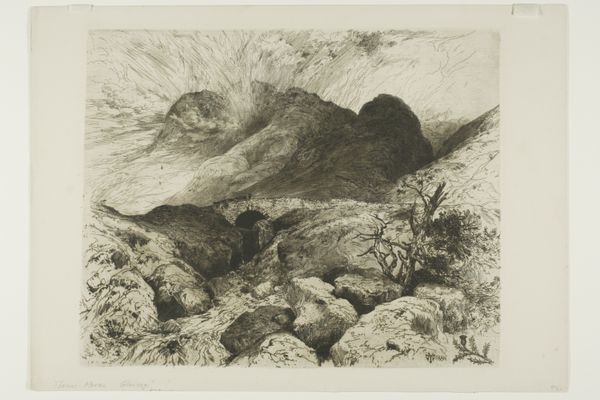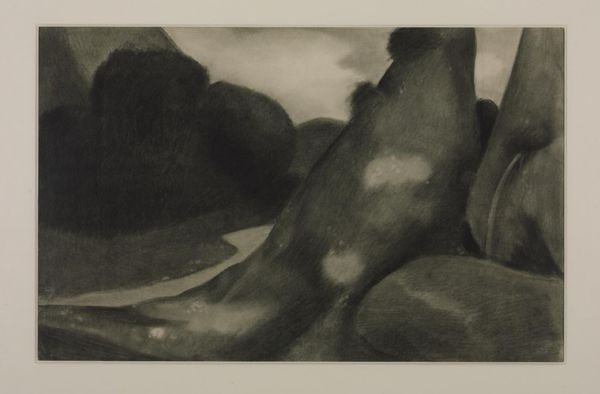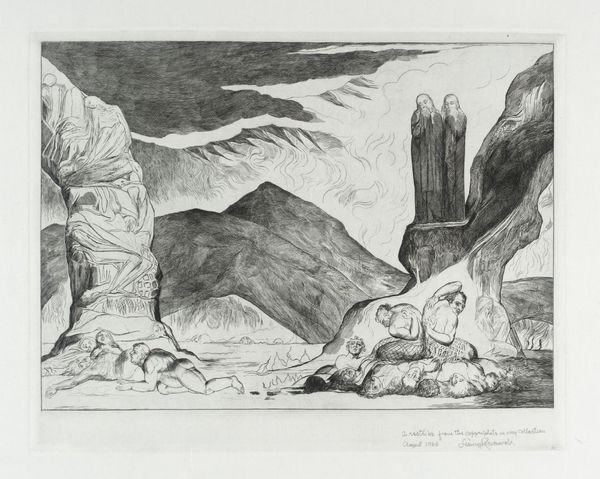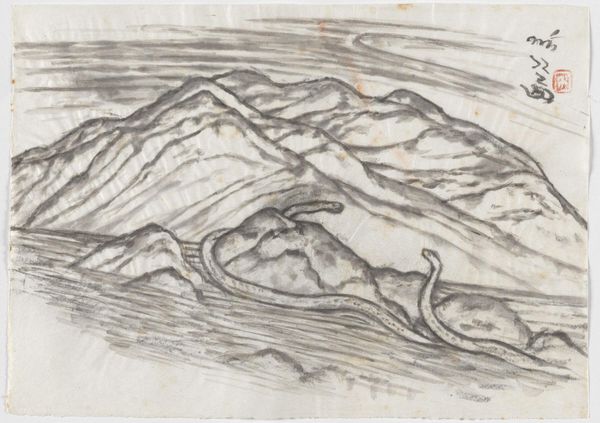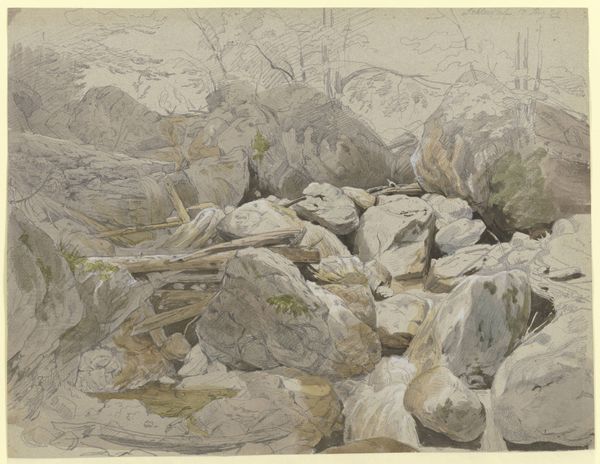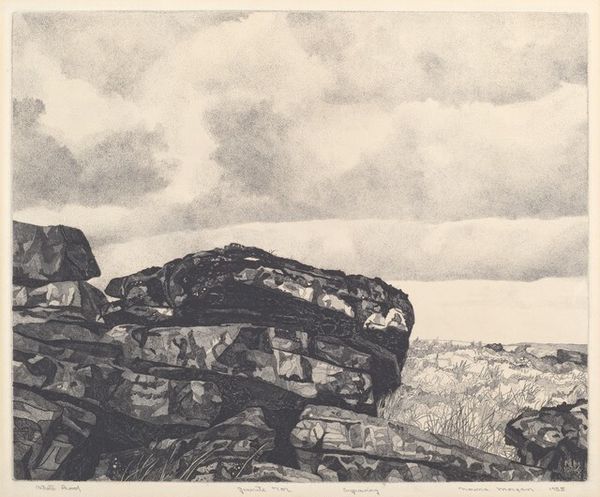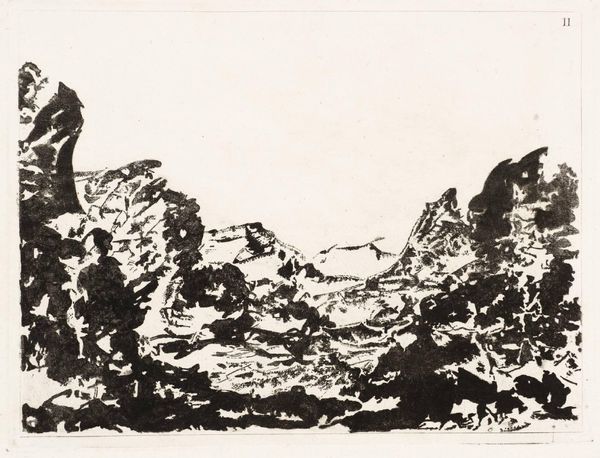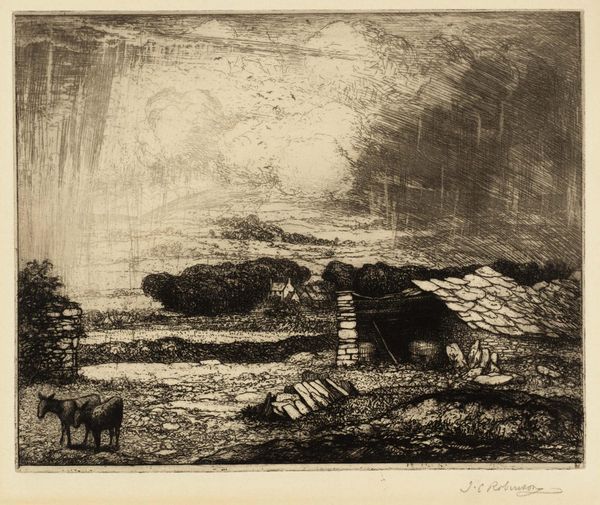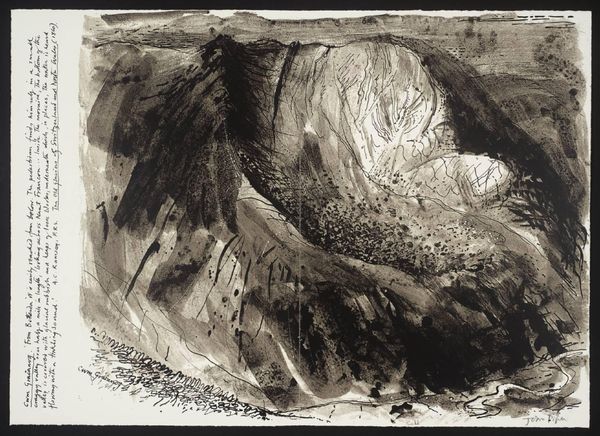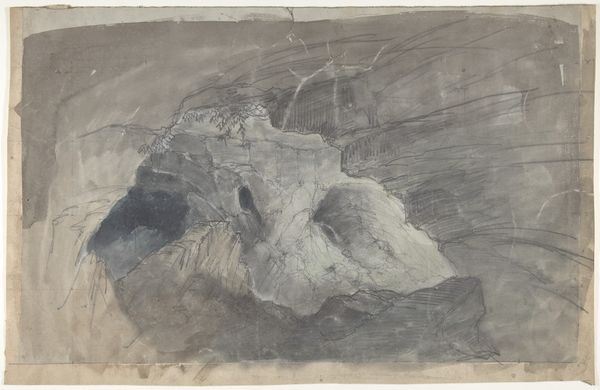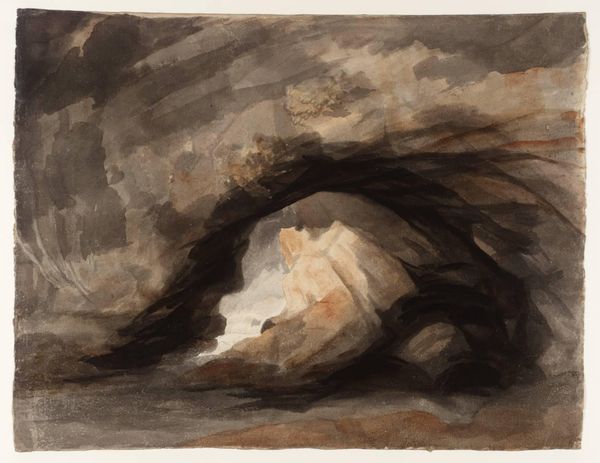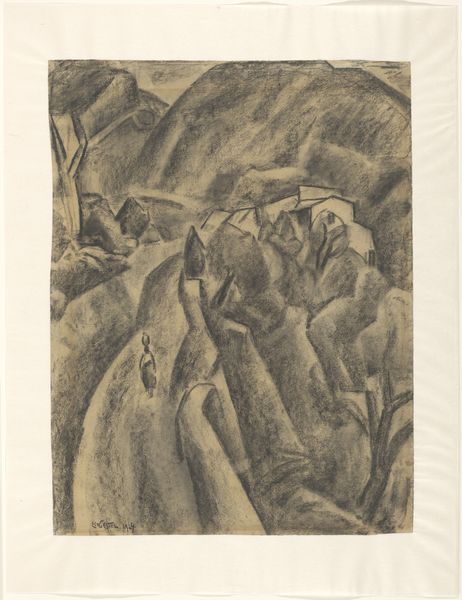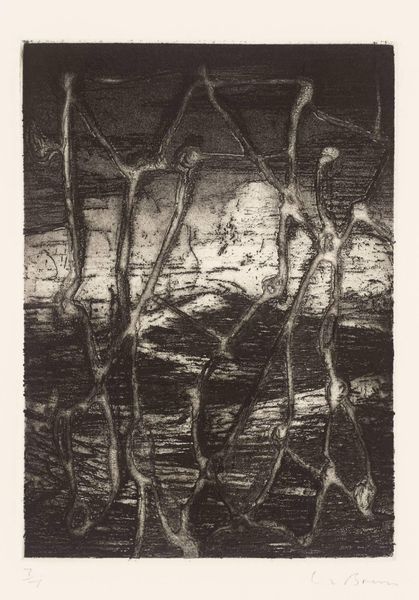
Copyright: © The Piper Estate | CC-BY-NC-ND 4.0 DEED, Photo: Tate
Editor: Here we see John Piper's "Glaciated Rocks, Nant Ffrancon." It really emphasizes the texture of the stone and the landscape. How do you interpret this work? Curator: I see a commentary on the very process of landscape art itself. The materials, the paper, ink, and the artist's labor are all crucial. Consider how Piper translates the immense geological forces into marks on a page. Editor: So, it's about more than just representing the rocks? Curator: Precisely. It’s a record of human interaction with the land through material means. It challenges the idea that landscape art is merely a passive observation. Editor: That really makes you think about the artist's physical involvement. Curator: Absolutely. It highlights the labor and materials inherent in creating art, transforming our understanding of landscape representation.
Comments
tate 9 months ago
⋮
http://www.tate.org.uk/art/artworks/piper-glaciated-rocks-nant-ffrancon-t06446
Join the conversation
Join millions of artists and users on Artera today and experience the ultimate creative platform.
tate 9 months ago
⋮
Many critics believe that Piper's gouaches of Snowdonia, an example of which the Tate has lacked until now, are among his best works. Their rather sombre aspect could be associated with the artist's experience of the destructiveness of the Second World War. As an official War Artist, he had recently recorded the effects of war in other works, such as the Tate's watercolour of the blitzed, 'All Saints Chapel, Bath' 1942. (N05719). Piper produced a resumé of his work in the screenprint portfolio, 'Stones and Bones' 1978 (P07363) and included a number of Welsh mountain images, indicating their importance for him. Gallery label, August 2004
